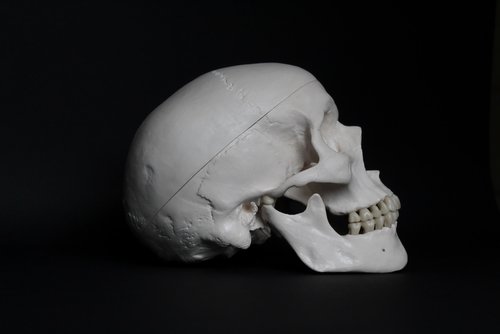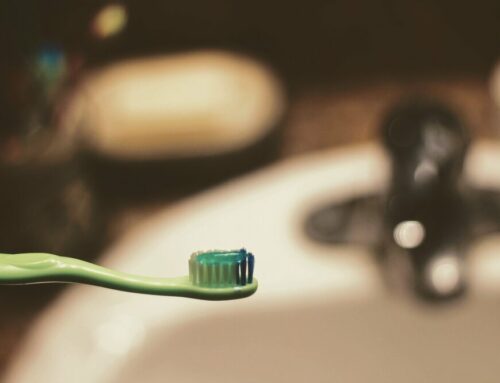The temporomandibular joint, or TMJ, is the joint that connects your jaw to your skull. To chew, swallow, speak, yawn, and show expression, this joint slides up and down. If you experience pain in your TMJ, it’s possibly due to a TMJ disorder or injury.

Types of Temporomandibular Disorders (TMD)
Genetics
TMJ pain and disorders can be hereditary.
Arthritis
Any joint can become subject to arthritis. If you develop arthritis in your TMJ, you will feel pain, stiffness, and swelling in your jaw joint.
Bruxism
The habit of clenching your teeth, called bruxism, can potentially develop into a temporomandibular disorder. While many who experience bruxism may never develop a TMD, it’s possible that clenching your jaw for long periods of time will evolve into jaw pain.
Injury
Those who have broken their jaw in the past may deal with TMJ pain for the rest of their lives.
Improper Bite
If your bite is not properly aligned, you can experience jaw pain. Crafting a plan with an orthodontist for care to align your teeth and jaw may alleviate this pain.
Combination of Factors
TMJ pain can result from multiple factors simultaneously affecting you. Each factor listed above has a different treatment or medication to alleviate the pain. Meeting with a dentist and doctor to determine what is causing the pain is crucial to developing a treatment plan.
TMJ Pain Treatment
Over-the-counter Pain Killers
While it is not recommended to constantly be on pain killers such as Tylenol and Ibuprofin, it’s good to keep them on hand when the pain is too much to bear. Taking these medications frequently can harm your liver and kidneys, so it’s best to find another treatment to alleviate pain long-term.
Orthodontic Treatment
If your bite is causing your TMJ pain, visiting an orthodontist is worth your time. If your bite lines up in a way that applies pressure to your jaw joint, you can develop pain and a TMD.
Bite Guards
If your TMJ pain is caused by bruxism, or grinding/clenching your teeth, can be alleviated by sleeping with a nightguard to prevent you from clenching or grinding your teeth throughout the night. Not only will a nightguard potentially alleviate jaw pain, but it will also help your teeth’ enamel stay intact.
Natural Remedies
Herbal Remedies
There is no proven way to cure TMJ with herbal remedies, but many recommend anti-inflammatory herbs to help alleviate pain caused by TMJ. These herbs are rosemary, kava kava, rose petals, clove, and calendula.
Stress Relief
When we’re stressed, we’ll often tense our jaw in response. Overly used muscles and joints can grow sore. To experience stress relief, you can visit with a therapist, identify stressors, rest, and find a way to unwind from the day. Many find relief with baths, meditation, and more.
Surgery
If your choose to have jaw surgery, understand that the risks of complications are high. After surgery, some patients have a loss of jaw movement, scarring, or the body rejects the artificial jaw pieces inserted during the surgery. It should be used as a last resort treatment in the worst of cases.
When to See A Doctor
If your jaw has been bothering you, remember to bring up your pain at your next doctor or dental appointment. While it’s possible the pain can stem from multiple factors, you can begin to find answers quickly. Schedule your appointment with My Dental Dentistry Implants today!







